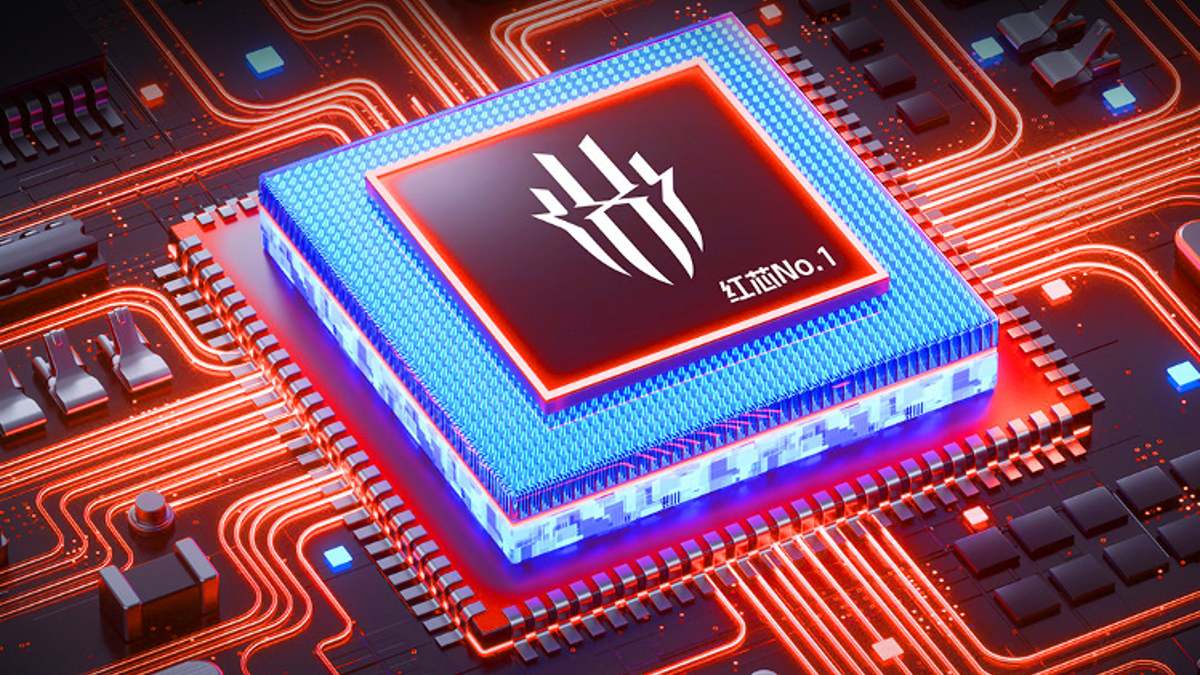Nubia Red Magic 7 gaming smartphones will come equipped with a dedicated gaming chip called Red Core 1, the ZTE-owned brand has announced via a post on Chinese microblogging website Weibo. This chip is claimed to offer an enhanced gaming experience by facilitating improvements in shoulder button response, vibration feedback, audio, and RGB lighting. The Nubia Red Magic 7 series, which is expected to come with the Red Magic 7 and Red Magic 7 Pro models, will be launched in China on February 17.
As per a post on Weibo, Nubia Red Magic 7 gaming smartphone will have the Red Core 1 dedicated gaming chip that is co-developed by Red Magic team, Awinic, and JD Esports. The company says that the chip will offer improvements in four core areas that will eventually offer an enhanced gaming experience.
The first one is in relation to the shoulder buttons. As per the image shared by the company, the phones will have dual independent touch shoulder buttons that will offer “millisecond-level touch response, rich custom settings, quick implementation of complex operations, five-channel high-performance IC, 500Hz touch sampling rate, and algorithm optimisation (translated)”. These keys are water and sweat resistant as well.
The second one is related to haptics response. The company says that the Red Core 1 gaming chip on the Nubia Red Magic 7 smartphones will come with a dual X-axis linear vibration motor that will offer a response speed of 1ms, and increase vibration intensity by 160 percent.
The speakers on the Nubia Red Magic 7 gaming smartphones will also benefit from the dedicated gaming chip in terms of optimised sound, as per the company. The speakers will be 19 percent louder as compared to previous generation of phones, and they will offer an optimised high and low-frequency sound output and bass. The dual speakers will come with Magic Bottom Sound Algorithm (translated) and DTS: X Ultra surround sound.
The Nubia Red Magic 7’s Red Core 1 dedicated gaming chip will also handle the RGB lights on the back panel. It will allow users to choose between 4096 levels of brightness, and the chip will also offer the Acousto-optic synchronic algorithm (translated).

